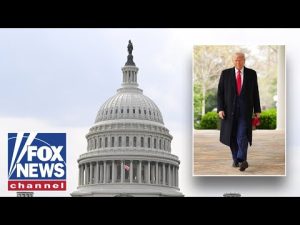As July 4th rolls around, Americans find themselves reflecting on the foundational principles that shaped our nation. One way to do this is through the wisdom of the Founding Fathers, whose quotes can serve as guideposts in today’s tumultuous political landscape. While many might dismiss these documents as relics of a bygone era, a closer examination reveals their relevance to contemporary issues. The core beliefs expressed by leaders like Thomas Jefferson, James Madison, and Benjamin Franklin still resonate, reminding us of the values that define American democracy.
Let’s start with Thomas Jefferson’s assertion that “we hold these truths to be self-evident.” This powerful phrase sets the stage for understanding equality in America. Jefferson was not arguing that every individual possesses identical capacities; rather, he emphasized that all are endowed with unalienable rights by their Creator. These rights—life, liberty, and the pursuit of happiness—are intrinsic and cannot be forfeited. Importantly, the “pursuit of happiness” must be understood as a quest for virtue and fulfillment, not simply the indulgence in fleeting pleasures. If we ignore this distinction, we risk undermining the very foundation of our rights and liberties.
Next, Madison’s words from Federalist 51 remind us that a government built on checks and balances is essential to liberty. Madison understood human nature, including its darker impulses. He cautioned that without appropriate controls, those in power could easily drift toward tyranny. A government that functions effectively requires a careful architecture—one where ambition counteracts ambition. The necessity of these checks becomes clear when considering how easily leaders can overreach if left unchecked. Ironically, the founders’ wisdom seems to be lost on some modern politicians, who prefer to bypass checks to advance their agendas.
Meanwhile, one cannot discuss the norms of governance without mentioning the iconic Patrick Henry’s demand for liberty—or death. This sentiment encapsulates the belief that liberty must always be fought for. It is not a passive gift from the government but a fundamental right to be defended with vigor. The current state of surveillance and erosion of personal freedoms by both governmental and tech entities starkly contrasts Henry’s impassioned cry. If we allow our rights to be encroached upon without resistance, we risk turning those cries into mere echoes of history.
Moreover, it would be remiss not to touch upon George Washington’s reminder of religious toleration as he wrote to a Hebrew congregation. Washington’s letter emphasizes America’s role in fostering an environment of acceptance and virtue. This principle of acknowledging and respecting diverse beliefs is a cornerstone of American democracy. However, in today’s climate where political correctness often stifles honest discourse, one can’t help but wonder if we have strayed from the inclusivity Washington envisioned. The radical left’s rejection of traditional values seems at odds with the foundational urge toward unity and understanding that marked the early republic.
Finally, looking back at Benjamin Franklin’s wry observation that nothing is certain except death and taxes, it begs the question of how durable our Constitution truly is in light of contemporary challenges. The founders anticipated a system of governance resilient enough to adapt, yet they could never have imagined the vastness of federal power we see today. If they were transported to modern America, the Founding Fathers would undoubtedly be shocked by the current regulatory state and the way it intrudes upon the daily lives of citizens. This overreach can be likened to the very tyranny they fought against; they would likely roll their eyes at the notion of a large, omnipotent government acting in ways that contradict their foundational principles.
As this Independence Day approaches, let us reflect on the wisdom of our forefathers. Their words are not merely historical artifacts; they are a call to arms for every generation to protect the rights afforded to us. In a world increasingly marked by division and encroachment on personal freedoms, honoring their legacy involves not just remembering their quotes but actively engaging in the fight for liberty and justice for all. So, instead of letting history simply gather dust, let’s lean into it with humor and conviction, ensuring the principles of our Founding Fathers continue to light the way.







